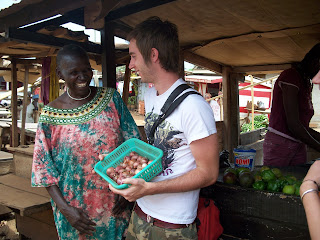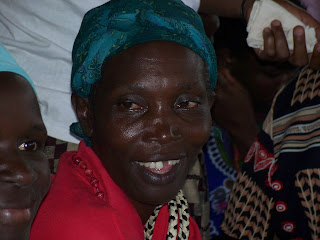


It’s really hard to believe, but I leave Uganda tomorrow morning. I feel like I should attempt to summarize what has happened over the last two and a half months, but the thought of trying to do that is pretty daunting!
The relationships that I’ve formed with some of the women here will remain with me for years to come, and I’m anxious for the day when I can come back here to visit them (P.S. next time I’m bringing Ben and/or my family with me, so get ready you guys). It sounds really cheesy and cliché, but getting to know the women has not only allowed me to learn a lot about their culture, but it has taught me so much about myself. Before I came here, there was a deep desire in me to help the poor and less fortunate, but for whatever reason, I was too scared/lazy to actually act on that desire. After being here and seeing what it’s really like for people to live in poverty, there is a completely renewed desire in me to connect with the poor at home. I’m a little nervous for what will actually happen when I get home because I know that it would be very easy for me to fall into the pattern of giving money and being satisfied that I’m helping, but I truly feel like I need to actually interact with people at a soup kitchen (or wherever) in order to feel like I’m making a difference. Annnnyway, I really hope that I won’t fall back into living my life like I was before I came and that I will actually live outside my comfort zone!! As a side note, most of what I’ve learned has been really brought to the forefront of my attention by conversations Rachel and I have had while walking around the villages and Jinja…so, thank you so much for that Rach!!!
Changing the subject a little, we’ve spent most of the past week in Walukaba at various women’s houses, which has been great (as always). We helped Getu (she stepped on a nail about 6 weeks ago and her foot still isn’t healed) wash clothes and do dishes one morning, and yesterday we hung out at Santa’s (the woman covered with beads in the picture) house and helped her make necklaces pretty much all day. One highlight of the week was a visit to Sylvia’s house (picture of her and her two kids, Jaquline and Joram)…she’s the woman who Rachel and I gave money to so her kids could go to school. After talking about it, Rach and I decided that we felt like we should sponsor her kids, which means that we’ll keep sending money to her so that she doesn’t have to worry about paying school fees anymore. The change in her attitude has changed so much since the first time we met with her! The first time we met with her, she didn’t smile once and she seemed very detached. This past week, though, she smiled pretty much the whole time we were there, and talked to us openly, which was great! When I first heard her story, I hoped that us giving her money for school fees would relieve a burden and make her life easier, but I guess I didn’t realize the drastic difference it would make in her overall quality of life.
Thank you so much to everyone who has read this over the past couple months! To everyone at Church of the Nativity at home, your thoughts and prayers have been SO MUCH appreciated…thank you for really opening your hearts to these women, hearing their stories, and buying their necklaces! I kind of feel like I’m going to start giving a thank you speech that would belong at the Oscars, so I’m gonna just leave it at that! See you soon!















